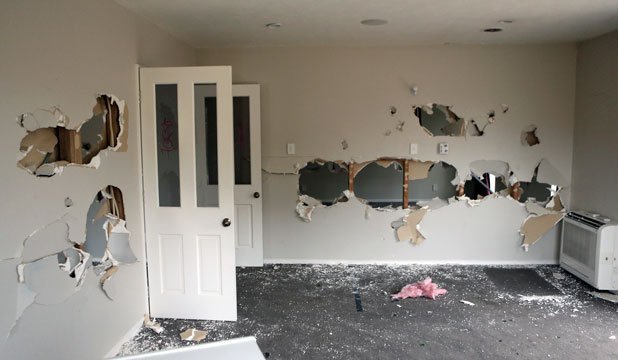Earlier in the summer the government unveiled its draft Tenants’ Fee Bill which included details of the impending ban on letting agent fees charged to tenants as well as the first mention of a cap on holding deposits and security deposits.

Government plans to introduce a cap on damage deposits paid by tenants in the private rented sector could lead to an increase in formal deposit disputes, theNational Landlords Association has claimed.
Earlier in the summer the government unveiled its draft Tenants’ Fee Bill which included details of the impending ban on letting agent fees charged to tenants as well as the first mention of a cap on holding deposits and security deposits.
It has been proposed that holding deposits are capped at no more than one week’s rent and security deposits at no more than one month’s rent, down from the current level of two months.
The National Landlords Association estimates that approximately 40% of current security deposits exceed the proposed one month rent cap. A full draft of the Tenants’ Fees Bill is expected to be published later in 2017, with legislation being introduced at some point the following year.
However, according to regulatory trade body the Association of Independent Inventory Clerks (AIIC) while a cap on deposits will help tenants during the initial stages of a rental, the lower sums required could lead to an increase in the number of formal deposit disputes.
Formal deposit disputes occur when tenants and landlords cannot agree over proposed deductions taken from the damage deposit at the end of a tenancy.
Danny Zane, joint chair of the AIIC, said: "A cap on security and holding deposits is certainly more positive than an outright ban as has been proposed for up front letting agent fees charged to tenants.
"However, we are concerned that as tenants will be committing less money to cover damages at the start of a tenancy, they may take a more laissez faire approach to the rental property, and landlords could therefore be left with more damage and repairs to deal with."
In this scenario, landlords are more likely to make deductions from tenants’ deposits, which if challenged by the renters, could lead to a formal deposit dispute.
Joint chair Emma Glencross added "We understand that some tenants are finding damage and holding deposits unaffordable, and a cap on deposits will certainly help them when looking for a rental property.
"We hope that the lower sums of money involved don’t encourage renters to take less care of their rental properties. Both landlords and tenants want to avoid deposit disputes at all costs and this government initiative could, in some cases, have unintended consequences,."
Some landlords currently ask for higher deposits for their own peace of mind, to cover high ticket furniture items or allow pets. But a cap on deposits will stop them being able to do so and could therefore discourage landlords from letting or adversely affect the standard of private rental properties.



